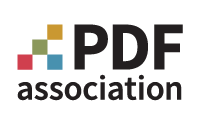
Automation & PDF Workflows Drive Powerful Benefits at Pinnacol Assurance
Excerpt: From their headquarters in Denver, Colorado, Pinnacol Assurance is the state’s largest workers’ compensation insurance carrier, managing thousands of communications each day. Committed to leveraging technology to meet the needs of their clients, they constantly review their processes and use best practices as their criteria for change.
About the author:

Contents
Introduction
Pinnacol Assurance has been keeping their promise to protect the health and safety of Colorado organizations and their employees since 1915. From their headquarters in Denver, Colorado, Pinnacol Assurance is the state’s largest workers’ compensation insurance carrier, managing thousands of communications each day. Committed to leveraging technology to meet the needs of their clients, they constantly review their processes and use best practices as their criteria for change. Here are a few of the ways they work on behalf of their constituents:
- Industry expertise – Teams surround themselves with industry experts to support the production of claims, medical management, underwriting, and hands-on policy management.
- Safety services – Using the largest, most skilled Safety Services team in the state, they provide free, industry-leading safety resources, training, and education to all Pinnacol customers.
- Return to work – Using dedicated consultants, they design tailored programs for individual claimants to get injured employees back to work safely and as quickly as possible following an injury.
- Preferred provider network – Treating workplace injuries throughout Colorado using specialized expertise.
- Expert claims management – Resolving claims 25% faster than competitors to get employees back to work sooner.
- Out-of-state coverage – Supporting Colorado businesses that are expanding operations beyond the state’s borders.
Solimar Systems recently interviewed Craig Coley, Director of Corporate Services at Pinnacol Assurance to discuss their decision to acquire and implement their Solimar Systems solution.
The Challenges
Managing and supporting workers’ compensation insurance business involves communicating with many parties. Pinnacol Assurance develops, distributes, and mails policies, letters, invoices, bills, and other types of regulated communication. Pinnacol identified several areas to improve their existing high volume production printing and distribution operations, including:
- Normalizing alternate print streams to allow PDF-centric job processing and printing
- Migration away from cut-sheet pre-printed shells to a white paper print factory using color, digital inkjet technology
- Expansion of automation for recurring and repeatable workflow processes
- Reducing manual tasks to lower operating costs
- Implementing validation and verification methods to help protect sensitive data
“One of our principal challenges was to reduce manual operations from our workflows wherever we could in order to become more efficient,” said Craig Coley, Director of Corporate Services at Pinnacol Assurance. “We analyzed our current production workflows for areas that were candidates for improvement. We then established various improvement objectives and how to achieve them.” In migrating to PDF-centric job processing, Pinnacol established goals to:
- Enable PCL data stream transformation to PDF
- Add barcodes to leverage finishing technology automation
- Eliminate pre-printed forms
- Increase productivity and print capacity to eliminate outsourced work
The Solution
Pinnacol Assurance chose the Solimar® Chemistry™ platform and determined that Solimar® Print Director™ Enterprise (SPDE) and Rubika® software solutions would address many of the workflow bottlenecks they were experiencing.
SPDE gave Pinnacol productivity tools that work together to provide sophisticated print control and job management, including powerful data file transforms to automatically convert data streams and resources for virtually any target device. Coley said, “Our Solimar system takes in our PCL files and converts them to PDF so they can be printed on our Xerox® Rialto® inkjet press. The whole process is automated and very efficient.”
Before Pinnacol acquired their inkjet device they were using cut-sheet printers with pre-printed shells to support a portion of their outbound communications. Rubika enabled conversion to digital overlays, underlays and digital content, replacing the pre-printed forms.
“Moving away from pre-printed shells and having the ability to insert digital content has reduced manual processes and allowed us to take on more of a white paper factory approach. Not having to manage the inventory headaches of pre-printed paper shell forms – ordering, receiving and storing – is liberating plus it is saving us money. Rubika eliminates the need for us to constantly replace pre-printed master forms. It has also reduced our spoilage costs associated with inventory obsolescence.”
“Prior to Rubika being implemented we also had to manually sort our printed letters by page counts and then run them through a folder/inserter. This labor-intensive process would take one person most of the day to manually sort and run the mail.” Now, Rubika applies barcodes to the letter, eliminating the manual sorting processes. The barcodes are automatically read by finishing equipment and accurately sorted. The Rubika applied barcode has also improved verification of outgoing documents.
“Ensuring the right document gets to the right party is critical in the insurance industry. The Rubika generated barcodes have reduced our risks associated with incorrect document deliveries,” said Coley. “We must be a trusted source when handling personal data and Rubika helps us with our accuracy, overall protection and reputation.”
”Implementing automation across several workflow areas gave Pinnacol additional in-house production capacity. This allowed them to reduce outsourced work and perform the work themselves. “Bringing back jobs to our shop demonstrated how much more efficient we had become,” said Coley. “It served as a measuring stick of success.”
The Results
When it comes to critical worker’s compensation communications and other types of confidential mailings, there is no substitute for getting it right. As an insurance carrier, selecting the right processes and systems to optimize customer communications is not an option, it’s an absolute necessity.
“We reviewed our production print and mail workflows before and after the Solimar solution was installed. We discovered we were able to eliminate many manual labor steps and the related costs,” said Coley. “Using Rubikaapplied barcodes help us manage and control our documents. That has been a huge success. Using the Solimar solution, we were able to reduce labor expenses by $75,000 per year.”
By combining Pinnacol’s Xerox Rialto inkjet press along with their Solimar solution, they have created a white paper factory that works well for them. This means the Pinnacol production process is managed digitally with composed files connected to in-line print production followed by intelligent insertion using barcodes. “Eliminating over 3,000 pre-printed shells and migrating to a white paper factory workflow is saving us $40,000 per year,” said Coley.
Coley added, “Our Solimar system enables us to essentially develop and output any type of variable data generated document type. The white paper factory model keeps all our content and data secure plus it facilitates increased productivity and printed efficiencies for us.”
“Solimar’s technical support has helped whenever needed. Coley added, “The Solimar support team is great. They not only get us the answers we need, but get them to us quickly. That really helps when dealing with project deadlines.”
Find out more details here or download a PDF copy of this case study here.


